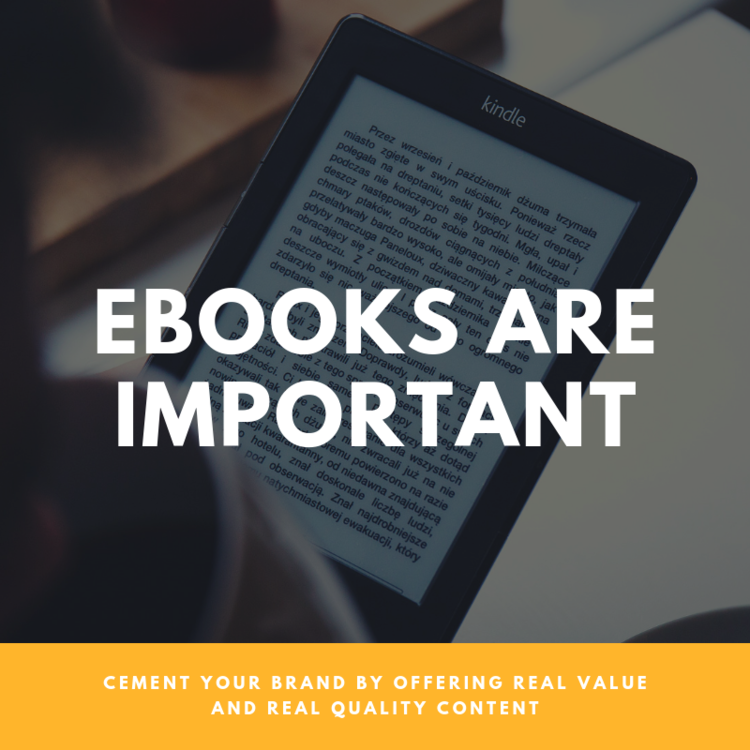Originally published April 15, 2019 , updated on May 26, 2023
By creating and distributing valuable, relevant, and consistent content, marketers aim to attract and acquire a clearly defined audience. The major goal is to convert this traffic into profitable customer action.
Of course, the keyword here is “valuable”. It’s what distinguishes content marketing from other forms of advertising. Instead of simply pitching products or services, it becomes necessary to provide truly reliable, relevant, and useful content to potential and current customers, helping them solve their problems or answer their own questions.

The best way to tell if a piece of content is worth using in a content marketing campaign, is to establish whether people actively seek it out. If people want to consume it rather than avoid it, it’s worth your while.
A strong content marketing strategy includes a variety of content types. As individual pieces begin to take shape, there are some specific items to keep in mind: blog posts, ebooks, cheat sheets, workbooks and templates, whitepapers and reports, infographics, slide decks, video, etc.
Why Content Marketing
According to Pagefair.com, over 200 million people now use ad blockers. Conventional marketing tactics are becoming less effective. “Good” content is impervious to ad-blocking software and actually happens to be something that consumers want to interact with. Content marketing is therefore more effective and welcome on a foundational level.
There is the assumption that content marketing is an expensive alternative to the traditional marketing model. This, however, is inaccurate. Content marketing is highly effective and easy to begin. It is popular with consumers and can therefore drastically reduce the amount of money that would otherwise be spent on advertising that has a potentially lower success rate.
Roughly 88% of today’s B2B marketers use content marketing as the foundation of their marketing strategy. The sustainable value of content marketing means that brands are able to easily connect with their customers, as the lines of communication are a little more open. With conversion rates that are six times higher than those associated with traditional marketing efforts, it is hardly surprising that content marketing is growing in popularity.
Ebooks in Content Marketing
According to Jesse Noyes, senior director of content marketing for Kapost, “Fat content will become the focus of marketers everywhere.” The term ‘fat content’ extends to include whitepapers, infographics, ebooks, and videos – all of which can be used in a clever content marketing strategy.

In a content marketing plan, eBooks are best used by businesses that need to communicate complex information in a way that is both interesting and accessible. The term “infotaining” is often used to describe these eBooks. They should be filled with practical, useful, and possibly inspiring content that aligns with the business’ brand.
eBooks present the perfect balance between education and entertainment. Visually, an eBook is more appealing than a whitepaper yet it is more serious than an infographic. Essentially, eBooks cover several bases whereas other forms of content tend to be a little more one-dimensional. According to PricewaterhouseCooper LLpP, eBook sales are expected to grow from $2.31 billion in 2011 to $8.69 billion in 2018. This proves that they are somewhat of a “hot” commodity.
eBooks are being referred to as “fat” content, anything that can be broken up into smaller pieces and used in multi-channel campaigning. Ultimately, flexibility is what makes this type of marketing tool so popular. At least 39% of B2B marketers are using eBooks as a part of their strategy, whereas “thin” online content is slowly edging its way out of the limelight.
Benefits of eBooks
There are several benefits to using eBooks as a part of a business’ marketing strategy. We have highlighted some of them below.
Generate Leads
What sets eBooks apart from other marketing tools is the fact that they seem to be more informative than a regular part of an advertising tactic. To the consumer, they exist in order to provide entertainment or expertise. After all, the best source of knowledge is an industry expert who can offer insight into solving the “real-life” problems of customers.
In an age where transparency is key, marketers will find that potential customers shy away from anything they perceive to be a “hard sell”. EBooks enable marketers to control the content they send out. The content becomes more inviting to consumers, drawing their attention in such a way that they feel as though they made a conscious choice to pursue a particular service. It should be instead of feeling as though they’ve been harassed into making a purchase.
Ebooks have the following technological advantages in lead generation:
-
The electronic medium provides a convenient method for an immediate call-to-action – a click!
-
eBooks containing links allow businesses to track their success through quantifiable measurements.
-
Rather than provide a static product, companies can add links to a variety of additional media (video, audio, or graphics) adding visual appeal.
-
An eBook is fast and easy to produce while still looking great and providing a professional appearance to a business’ content strategy.
Build a Brand
When used properly, an eBook will cause potential customers to link the content to a particular business’ existing brand. For this reason, marketers need to find a way to ensure that they maximise the eBook’s ability to enhance the company’s image.
Connecting an eBook to a specific brand can be done in the following ways:
-
Complement the existing brand by using the appropriate logos, fonts, and colour schemes on the eBook cover.
-
Present a professional image by ensuring that the format, writing, and editing are publication-ready.
-
When making your eBook publication-ready, marketers should execute each step with precision – especially in terms of the conversion of media.
Offers Valuable Knowledge to Your Target Audience
When creating eBook content, authors should focus on topics that they have expertise in. Consumers are able to sense when content has been penned by an author who is floundering in unfamiliar territory. Furthermore, the eBook should not be about the product or service offered by the company in question.
While the eBook content may not be intended to sell, it will still have a positive impact on the decision-making of its audience. The key here is to ensure that there is a call-to-action at the end of the eBook which links to the pertinent areas of the company’s website. This subtle method of selling helps readers make a decision without feeling they are under inordinate amounts of pressure.
Of course, the topic of the eBook should still be industry relevant. It should be something that will attract the attention of the appropriate audience and teach them something that will assist them in making the “correct” purchasing decision. Ebooks are often used to set a particular company up as a trusted source of information or an industry leader.
10 Best Practices for Creating eBooks

Below are the top ten best practices for creating quality, effective eBooks:
-
Covers should be compelling with short, provocative titles.
-
EBooks should be easy to find, share and act on.
-
Anticipate varying screen sizes for eBook consumption and make graphics and text readable across the board.
-
Lists, tips, and best practices with examples are the most compelling eBook content formats.
-
Include links within the eBook to blog posts, videos, and articles from the business itself and from 3rd party resources.
-
Focus on content that is easily shareable on social media.
-
Promote portions of the eBook through blog posts and social networks.
-
Co-create eBooks with industry thought leaders to create a built-in incentive for them to help promote.
-
Use a clear and relevant call to action according to the eBook purpose.
-
Provide PDF and embeddable versions of the eBook.




















